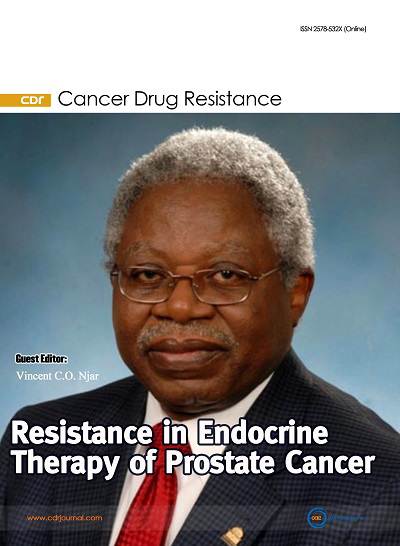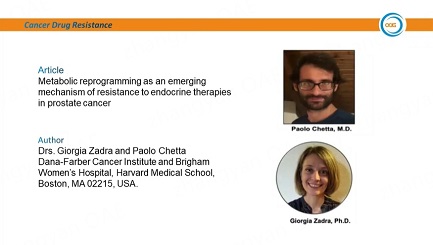
Topic: Resistance in Endocrine Therapy of Prostate Cancer
Guest Editor(s)
Vincent C. O. Njar, Ph.D.
Professor of Medicinal Chemistry & Pharmacology, Dept. of Pharmacology;
Head, Medicinal Chemistry Section, Center for Biomolecular Therapeutics (CBT);
Member, Hormone Responsive Cancer Program, Marlene and Stewart Greenebaum Comprehensive Cancer Center;
University of Maryland School of Medicine;
Baltimore; MD, USA.
Head, Medicinal Chemistry Section, Center for Biomolecular Therapeutics (CBT);
Member, Hormone Responsive Cancer Program, Marlene and Stewart Greenebaum Comprehensive Cancer Center;
University of Maryland School of Medicine;
Baltimore; MD, USA.
Special Issue Introduction
Prostate cancer is the second most frequently diagnosed cancer in men worldwide and it is the fifth leading cause of cancer-related death in men. Because the androgen receptor (AR) is the major target that drives this disease, endocrine therapies that modulate androgen receptor/androgen signaling, are the mainstay for the treatment of prostate cancer. These drugs are used for both castration-sensitive and castration-resistant disease states. Although endocrine therapy is the most widely used class of drugs for prostate cancer, a significant proportion of patients have innate resistance to the drugs and almost all patients eventually develop drug resistance. However, the mechanisms of resistance to these drugs are still emerging, mechanisms such as upregulation of AR, induction of AR point mutations, induction of AR splice variants, upregulation of 17α-hydroxylase/17.20-lyase (CYP17), a key enzyme in the steroidogenic pathway that lies at the crossroads of androgen and corticoid biosynthesis, upregulation of glucocorticoid receptor and activation of eukaryotic translation initiation factor 4F complex (eIF4F), a regulatory hub where several oncogenic hyperactive signaling pathways converge are well established. This Special Issue provides a comprehensive review of advances in these resistance mechanisms pathways/targets and the scientific and clinical progress to tackle this important medical problem and the challenges that are yet unmet.
Keywords
Prostate cancer, androgens, androgen receptor, endocrine therapies, hormonal/antihormonal therapies, castration, castration-resistant prostate cancer, drug resistance, molecular mechanisms of drug resistance
Submission Deadline
31 May 2020
Submission Information
For Author Instructions, please refer to https://www.oaepublish.com/cdr/author_instructions
For Online Submission, please login at https://oaemesas.com/login?JournalId=cdr&SpecialIssueId=367
Submission Deadline: 31 May 2020
Contacts: Belinda Zhang, Assistant Editor, belinda@cdrjournal.com
Bill Li, Managing Editor, bill@cdrjournal.com








